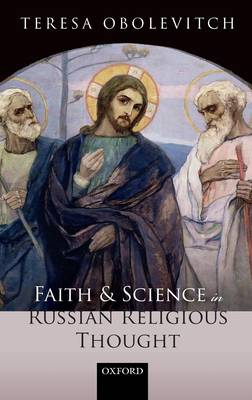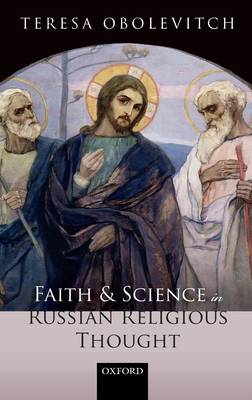
- Afhalen na 1 uur in een winkel met voorraad
- Gratis thuislevering in België vanaf € 30
- Ruim aanbod met 7 miljoen producten
- Afhalen na 1 uur in een winkel met voorraad
- Gratis thuislevering in België vanaf € 30
- Ruim aanbod met 7 miljoen producten
€ 201,45
+ 402 punten
Omschrijving
Faith and Science in Russian Religious Thought provides a comprehensive analysis of the relationship between science and faith in Russian religious thought. Teresa Obolevitch offers a synthetic approach on the development of the problem throughout the whole history of Russian thought, starting from the medieval period and arriving in contemporary times. She considers the relationship between science and religion in the eighteenth century, the so-called academic philosophy of the 19th and 20th century, the thought of Peter Chaadaev, the Slavophiles, and in the most influential literature figures, such as Fedor Dostoevsky and Lev Tolstoy. The volume also analyses two channels of the formation of philosophy in the context of the relationship between theology and science in Russia. The first is connected with the attempt to rationalize the truths of faith and is exemplified by Vladimir Soloviev and Nikolai Lossky; the second wtih the apophatic tradition is presented by Pavel Florensky and Semen Frank. The book then describes the relation to scientific knowledge in the thought of Lev Shestov, Nikolai Berdyaev, Sergius Bulgakov, and Alexei Losev as well as the original project of Russian Cosmism (on the examples of Nikolai Fedorov, Konstantin Tsiolkovsky, and Vladimir Vernadsky). Obolevitch presents the current state of the discussion on this topic by paying attention to the Neopatristic synthesis (Fr Georges Florovsky and his followers) and offers the brief comparative analyse of the relationship between science and religion from the Western and Russian perspectives.
Specificaties
Betrokkenen
- Auteur(s):
- Uitgeverij:
Inhoud
- Aantal bladzijden:
- 240
- Taal:
- Engels
Eigenschappen
- Productcode (EAN):
- 9780198838173
- Verschijningsdatum:
- 9/07/2019
- Uitvoering:
- Hardcover
- Formaat:
- Genaaid
- Afmetingen:
- 155 mm x 236 mm
- Gewicht:
- 498 g

Alleen bij Standaard Boekhandel
+ 402 punten op je klantenkaart van Standaard Boekhandel
Beoordelingen
We publiceren alleen reviews die voldoen aan de voorwaarden voor reviews. Bekijk onze voorwaarden voor reviews.










